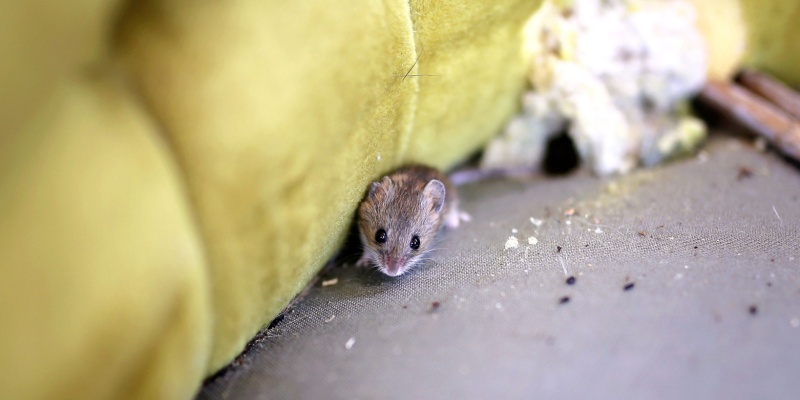Seeing a mouse in your home can be an unsettling experience, raising concerns about potential health risks and property damage. While one mouse sighting might not seem alarming, it’s important to understand the implications and take appropriate action. Here’s why you should be concerned if you see a mouse in your home and what steps you should take to address the situation:
Health Risks
Mice are known carriers of various diseases and parasites that can pose serious health risks to humans. Even a single mouse can contaminate food, surfaces, and air quality in your home.
- Hantavirus: This virus can be transmitted through mouse droppings, urine, and saliva. Inhaling dust contaminated with these substances can lead to severe respiratory issues.
- Salmonellosis: Mice can spread Salmonella bacteria through their droppings, leading to foodborne illnesses. Consuming contaminated food can cause symptoms like diarrhea, fever, and abdominal cramps.
- Leptospirosis: This bacterial infection is transmitted through contact with mouse urine. It can cause symptoms ranging from mild flu-like effects to severe complications such as liver or kidney damage.
- Lymphocytic Choriomeningitis (LCMV): Mice can carry this virus, which can be transmitted to humans through contact with urine, droppings, or nesting materials. LCMV can cause neurological issues and other severe health problems.
Property Damage
Mice have strong teeth that grow continuously, leading them to gnaw on various materials to keep their teeth in check. This behavior can cause significant damage to your home and belongings.
- Electrical Wiring: Mice often chew on electrical wires, which can create fire hazards. Exposed wires can lead to short circuits and electrical fires.
- Wood and Insulation: Mice gnaw on wood and insulation, weakening the structural integrity of your home. Damaged insulation can also reduce energy efficiency and increase heating and cooling costs.
- Stored Items: Mice can damage stored items such as clothing, paper, and furniture by gnawing and using these materials for nesting.
Long-Term Prevention
Preventing future mouse infestations involves ongoing vigilance and maintenance. Here are some steps to keep your home mouse-free:
- Regular Inspections: Conduct regular inspections of your home to identify and seal potential entry points. Pay special attention to areas around doors, windows, and utility lines.
- Maintain Cleanliness: Keep your home clean and free of food debris. Regularly vacuum and clean kitchen surfaces, and ensure food is stored properly.
- Use Deterrents: Consider using natural deterrents such as peppermint oil, which mice find unappealing. Soak cotton balls in peppermint oil and place them in areas where mice are likely to enter.
- Professional Pest Control: For ongoing protection, consider hiring professional pest control services. Professionals can provide regular inspections, treatments, and preventive measures to keep your home rodent-free.
Seeing a mouse in your home is a cause for concern due to the health risks and potential property damage. Taking immediate action by sealing entry points, setting traps, and maintaining cleanliness can help address the problem. For long-term prevention, regular inspections, deterrents, and professional pest control services are essential. By being proactive and vigilant, you can protect your home and health from the dangers associated with mice infestations.




